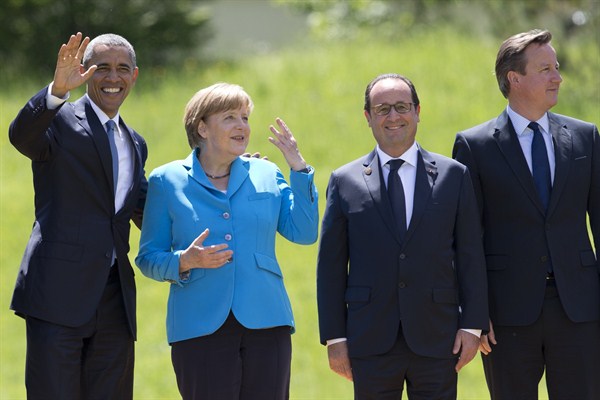This month represented another stepping stone in the long diplomatic march toward a prospective international climate change agreement in Paris in December. In the Bavarian Alps on June 7-8, the G-7 countries agreed on a communiqué reiterating their support for the goal of limiting climate change to below 2 degrees Celsius—compared to pre-industrial baseline levels—and pledging complete decarbonization of the global economy by 2100.
The G-7 countries also restated their commitment to a promise that they have been making repeatedly since the Copenhagen climate accord talks in December 2009. Developed nations pledged billions of dollars a year in financial assistance to help developing countries jumpstart carbon emissions cuts to mitigate climate change and implement projects to adapt and prepare for its effects. This aid is essential for developing nations, whose resources are focused on critical poverty alleviation goals, to grow their economies sustainably. Many developing nations have tied the strength of their emissions reductions pledges to this funding. After a long period of inactivity, the instrument for channeling that financial commitment, the Green Climate Fund (GCF), backed by $10.2 billion in pledges, is ready to start operations, pending the approval of specific projects.
Unfortunately, the fund has come under attack in the United States by conservatives in Congress, who have launched a wider campaign against many of the Obama administration’s climate change priorities, including a climate agreement in Paris. Senators and representatives have spoken dismissively of the fund in the past. Sen. James Inhofe—the Republican chair of the Senate’s Environment and Public Works Committee who threw a snowball on the Senate floor last winter to dispute the existence of climate change—called it a “United Nations slush fund.” It is, in fact, part of the United Nations Framework Convention on Climate Change (UNFCCC), but run by an independent board.

